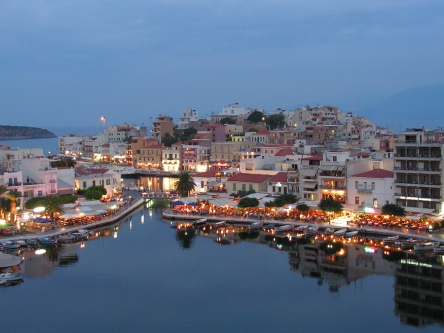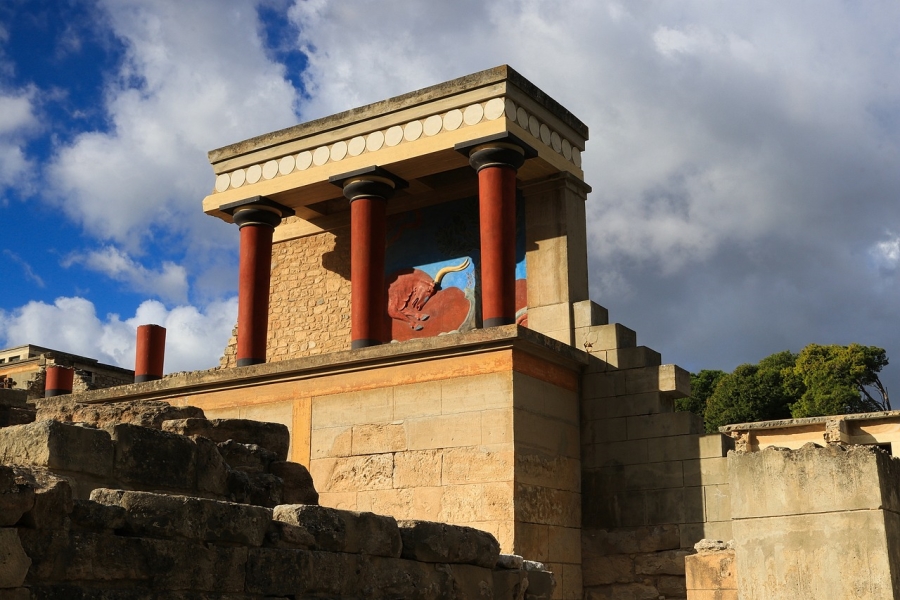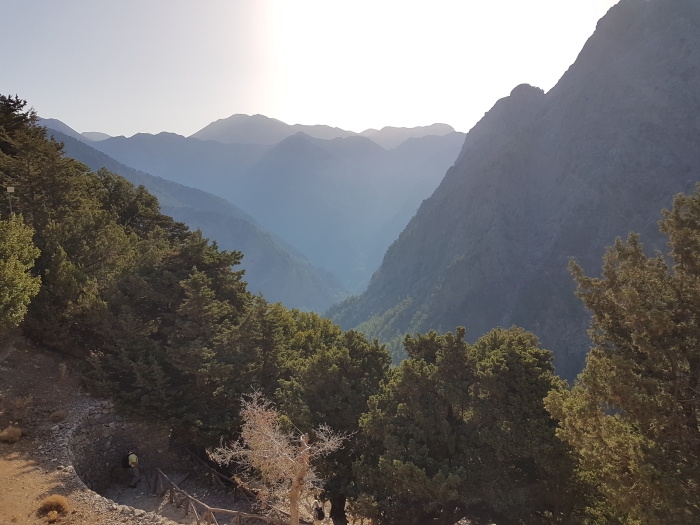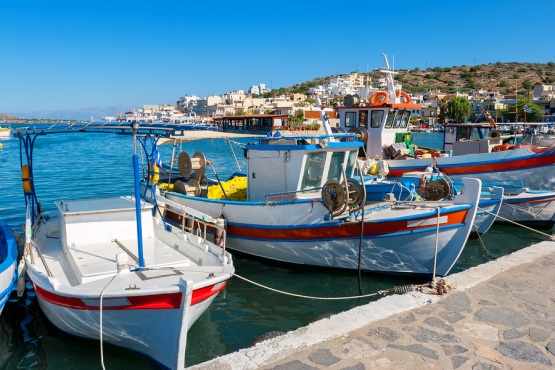Greek or Cretan?
Is someone from Crete a Greek or a Cretan? They are both, of course, but most will tell you that they are Cretan first and Greek second.
First a Cretan, then a Greek. This proud statement of ‘who I am’ is shared by Cretans across several generations, from humble villagers to the renowned writer Nikos Kazantzakis. To understand the Cretan character you must look to the bedrocks of island life – the family and the land.
Although Cretans spent decades striving for enosis, or union, with Greece, which was finally achieved in 1913, it was motivated by practical concerns for security rather than a sense of ‘roots’.
Physically separated from the rest of the country by the Sea of Crete, Greece’s largest island has its own unique history. There is often distrust of the government in Athens, and resentment of imposed rules.
Centuries of resistance to foreign occupation and the long struggle for freedom have left a deep imprint on the Cretan soul. Cretans are survivors, and value independence and self-reliance with a fierce pride, particularly in rural areas. The national costume worn by men at parades and festivals, with a dagger or firearm tucked into a waist sash, symbolises the importance of freedom and philotimo (honour) in Cretan tradition.
Eleftherios Venizelos
Streets and squares throughout the island bear the name of Crete’s great statesman, Eleftherios Venizelos (1864-1936). Born in the village of Mournies near Chania, he fought against Turkish rule and in 1897 led a protest that saw the first raising of the Greek flag on Crete. He became prime minister of Greece in 1910 and under his rule Crete’s union with Greece was achieved.
All in the Family
When a taxi driver takes you to his cousin’s shop or his brother’s hotel, it’s not just nepotism at work, it’s the Cretan way of life. Family means extended family – it’s common for three generations to live together under one roof, and close family members help each other in time of need.
Socially, the generations mix happily in Crete. You’ll often see hip youth in trendy clothes sitting side by side at the local bar with grandfathers in baggy breeches and high boots. Though many young people are leaving rural villages for softer jobs in tourism and the cities, most return for local festivals or to help with the olive harvest. And few would miss the grand celebrations of a family wedding or christening.
Wearing Black
Why do older women in the villages so often dress in black? Traditionally, Cretans wore black for three years out of respect for a dead relative. Foreign oppression brought such a cycle of loss and mourning that it gradually became the national colour.
Are All Cretans Liars?
The philosopher Epimenides, a Cretan himself, said so 2,000 years ago. St Paul quoted him and the claim stuck. Most likely it stems from an ancient Cretan belief in a fertility god who died and was reborn annually. The Cretans claimed their ‘Zeus’ was buried beneath Mount Giouchtas near Knossos, but the northern Greeks, for whom Zeus was immortal, were outraged by this heresy and branded them liars.
In general, Cretans are an honest lot – at least with strangers. What is true, however, is that they enjoy a good story. They love to talk, and often exaggerate or make promises that are forgotten the next day. It’s all part of their mercurial nature – alternately warm and indifferent, relaxed, passionate and glum, sometimes unreliable but always genuine in the moment.
The First Europeans?
According to Greek mythology, the god Zeus was besotted with a Phoenician princess. One day, while she was gathering flowers near the shore, he disguised himself as a pure-white bull to trick her. Playfully he let her ride on his back, then suddenly jumped into the sea and swam off with her to Crete.
There he ravished her under a plane tree at Gortina, and they were later married in the Diktean Cave. King Minos of Knossos and his brothers were their offspring. The princess’s name? Europa.
A Stranger and a Guest
The Greek word xenoi has a dual meaning. : ‘stranger’ and ‘guest’. It is the custom that a stranger is automatically a guest in one’s country and in one’s home. Although the sheer number of visitors to Crete today threatens this tradition, you will often be surprised by sudden gestures of hospitality – fresh figs from someone’s tree, a complimentary glass of raki, an invitation to share a meal.
Such generosity can’t be repaid, for Cretans take pleasure in the giving. Show your appreciation with a smile, or a simple word of thanks, in Greek if you can manage it: efharisto, also pronounced efkharisto, meaning ‘thank you’.
Cretan (and Greek) Institutions
The kafenion (café) is part coffee-house and part bar, and is to Crete what the pub is to Britain. There’s at least one in every town or village, and you’ll recognise it by the men sitting outside drinking strong Greek coffee or brandy, playing cards or backgammon, twirling their worry-beads, exchanging news, or talking politics.
The kafenion is a male domain, as much an unofficial men’s club as a public café, and although few Cretan women would buck tradition by coming here, exceptions are made for visitors.
The volta, or evening stroll, introduced by the Venetians, is the time for socialising in mixed company. Whether it be around the village square or along a seafront promenade, families and couples stroll arm in arm, stopping to chat with friends, and groups of young men and women gossip and flirt. It’s a chance to dress in one’s best, to see and be seen.
Latest Posts
-
The Lesser-Known Traditions of Greek Easter
Step off the beaten path this spring and discover the enchanting — and often surprising — Easter traditions found across Greece. -
Easter in the Mystical Castle of Monemvasia
In the castle town of Monemvasia, with its dramatic medieval backdrop and sea views, Easter is a deeply spiritual and atmospheric experience. -
Sifnos: Greece’s Hidden Culinary Star on the Rise
Sifnos, a Cycladic island, is gaining fame for its rich culinary heritage, especially the beloved melopita honey-cheese tart. -
Easter in Leonidio: A Tapestry of Light, Culture and Cliffs
In Leonidio, Easter comes alive with handmade hot air balloons in the sky and lanterns made from bitter oranges in the streets. -
April 9 Strike in Greece to Impact Public Transport, Ferries and Air Travel
Transportation and travel across Greece will face disruptions on Wednesday, April 9, as public transport, ferry and aviation workers join a nationwide strike called by Greek labor unions. -
Ancient Theater of Lefkada Brought Fully to Light Following Systematic Excavation
The Greek Culture Ministry has announced that the first ancient theater ever identified in the Ionian Islands has recently been brought fully to light on Lefkada, revealing an impressive monument that… -
Seven Greek Traditions Recognized as Intangible Cultural Heritage
From traditional barrel-making to age-old folk dances, seven new entries on Greece’s National Inventory preserve the country’s living heritage for future generations. -
Greek Air Traffic Controllers to Hold 24-hour Strike, Disrupting Flights on April 9
The Hellenic Air Traffic Controllers Union have announced a 24-hour strike for Wednesday, April 9, in response to the protest called by the Civil Servants’ Confederation (ADEDY). The strike is being h… -
Ten Best Budget Hotels on Santorini
Greece Travel Secrets picks the ten best budget hotels on Santorini, some with caldera views, some near beaches and some close to the heart of Fira. -
No Ferries in Greece on April 9 as Seamen Join Nationwide Strike
The Pan-Hellenic Seamen’s Federation (PNO) has announced its participation in the 24-hour strike called by the General Confederation of Greek Labor (GSEE) on Wednesday, April 9. The strike, which will…






























